Planning worship?
Check out our sister site, ZeteoSearch.org,
for 20+ additional resources related to your search.
- |
User Links
Person Results
‹ Return to hymnal
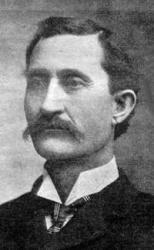
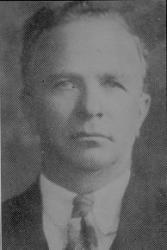
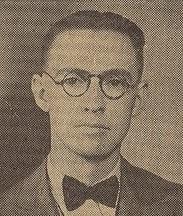

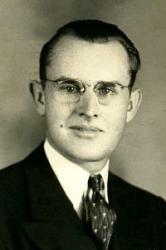
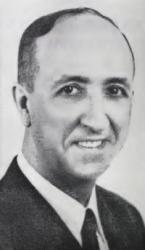
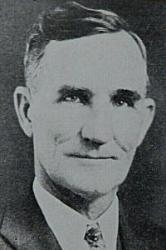
Export as CSV
F. L. Eiland

1860 - 1909 Hymnal Number: 49 Author of "I Am Leaving the Dangerous Sands" in Peaceful Echoes Franklin L. Eiland was born in Noxubee county, Miss., March 25, 1860. He was reared on the farm and attended the old field school. The
school house on the hill and the old Oaken Bucket, etc., etc., were objects of interest in his curriculum. He had traveled some before finally leaving home including a trip to Tx, but in 1882 he came to Tx to remain. November 13, 1884 he married Miss Mary E. Nisbett of Robertson county. She lived nine years. In 1894 he married Miss Ella May Kennedy of Van Zandt county. She lived only 10 days. October 21, 1896 he married Miss Minnie Jarushia Valentine of McLennan county. She still survives. They have one sweet little daughter, Mary Ella Oree. She is quite bright and is already starting music at the age of three. Little Elva Lynn came Sept. 16, 1901 and God took her
Aug. 9, 1902. The Eilands have been farmers and professional men along many lines, but Prof. Eiland was the only one that ever embarked in the music business. He was inclined to music from a child and appropriated all the advantages in this line that came his way. Many things of minor importance happened along his life but in 1884 he fell into a meeting conducted by Maj. W. E. Penn, and the superior music rendered there awaked all his latent talent and set him on fire with a desire to make a musician. He at once began a musical career that has attained an abundant success. He soon began teaching and continuing to study to became a composer. He sought the association of those who could teach him and in this and other ways has enjoyed advantages of the best talent to be found. In 1893 he began publishing. From this, came in due time The Trio Music Co. now operated in Waco. Prof. E. is president of the company and editor in chief of the journal. He moved later to Myrtle Springs to secure the benefit of the wonderful waters of those springs. He is given great credit for good influence wielded for his church and community.
From "The Southland", Vol. XII. No. 1, Waco Tx
F. L. Eiland
W. Oliver Cooper

1885 - 1963 Hymnal Number: 23 Composer of "[No shut-ins up in heaven]" in Peaceful Echoes Use pseudonym Oscar J. Schwab
W. Oliver Cooper
Marion W. Easterling

1910 - 1989 Person Name: M. W. E. Hymnal Number: 66 Author of "Come On, Dear Lord, and Get Me" in Peaceful Echoes Born: March 12, 1910, Clanton, Alabama.
Died: December 10, 1989, Birmingham, Alabama.
Buried: Martin Memorial Cemetery, Clanton, Alabama.
Marion W. Easterling, composed over 300 southern gospel songs. He received his music education in various singing schools, being taught by Ocie Lee DeVaughan, Dad Speer and others. In 1938, he was the youngest composer to sign a five year contract with the Stamps-Baxter Publishing Company. He has been listed in the Guinness Book of World Records for his long career as the programmer for the WKLF Radio stations's gospel program "America's Favorites". The program began in December 1947 and continued for 39 years, during which time, he broadcast over 20,000 shows.
--www.findagrave.com/
Marion W. Easterling
Robert Schumann

1810 - 1856 Person Name: R. Schumann Hymnal Number: 130 Composer of "[There is a name, I love to hear]" in Peaceful Echoes Robert Alexander Schumann DM Germany 1810-1856. Born at Swickau, Saxony, Germany, the last child of a novelist, bookseller, and publisher, he began composing music at age seven. He received general music instruction at the local high school and worked to create his own compositions. Some of his works were considered admirable for his age. He even composed music congruent to the personalities of friends, who took note of the anomaly. He studied famous poets and philosophers and was impressed with the works of other famous composers of the time. After his father’s death in 1826, he went to Leipzig to study law (to meet the terms of his inheritance). In 1829 he continued law studies in Heidelberg, where he became a lifelong member of Corps Saxo-Borussia Heidelberg. In 1830 he left the study of law to return to music, intending to pursue a career as a virtuoso pianist. His teacher, Friedrich Wieck, assured him he could become the finest pianist in Europe, but an injury to his right hand (from a practicing method) ended that dream. He then focused his energies on composition, and studied under Heinrich Dorn, a German composer and conductor of the Leipzig opera. Schumann visited relatives in Zwickau and Schneeberg and performed at a concert given by Clara Wieck, age 13 at the time. In 1834 he published ‘A new journal for music’, praising some past composers and deriding others. He met Felix Mendelssohn at Wieck’s house in Leigzig and lauded the greatness of his compositions, along with those of Johannes Brahms. He also wrote a work, hoping to use proceeds from its sale towards a monument for Beethoven, whom he highly admired. He composed symphonies, operas, orchestral and chamber works, and also wrote biographies. Until 1840 he wrote strictly for piano, but then began composing for orchestra and voice. That year he composed 168 songs. He also receive a Doctorate degree from the University of Jena that year. An aesthete and influential music critic, he was one of the most regarded composers of the Romantic era. He published his works in the ‘New journal for music’, which he co-founded. In 1840, against the wishes of his father, he married Clara Wieck, daughter of his former teacher, and they had four children: Marie, Julie, Eugenie, and Felix. Clara also composed music and had a considerable concert career, the earnings from which formed a substantial part of her father’s fortune. In 1841 he wrote 2 of his 4 symphonies. In 1843 he was awarded a professorship in the Conservatory of Music, which Mendelssohn had founded in Leipzig that same year, When he and Clara went to Russia for her performances, he was questioned as to whether he also was a musician. He harbored resentment for her success as a pianist, which exceeded his ability as a pianist and reputation as a composer. From 1844-1853 he was engaged in setting Goethe’s Faust to music, but he began having persistent nervous prostration and developed neurasthenia (nervous fears of things, like metal objects and drugs). In 1846 he felt he had recovered and began traveling to Vienna, Prague, and Berlin, where he was received with enthusiasm. His only opera was written in 1848, and an orchestral work in 1849. In 1850 he succeeded Ferdinand Hiller as musical director at Dusseldorf, but was a poor conductor and soon aroused the opposition of the musicians, claiming he was impossible on the platform. From 1850-1854 he composed a wide variety of genres, but critics have considered his works during this period inferior to earlier works. In 1851 he visited Switzerland, Belgium, and returned to Leipzig. That year he finished his fourth symphony. He then went to Dusseldorf and began editing his complete works and making an anthology on the subject of music. He again was plagued with imaginary voices (angels, ghosts or demons) and in 1854 jumped off a bridge into the Rhine River, but was rescued by boatmen and taken home. For the last two years of his life, after the attempted suicide, Schumann was confined to a sanitarium in Endenich near Bonn, at his own request, and his wife was not allowed to see him. She finally saw him two days before he died, but he was unable to speak. He was diagnosed with psychotic melancholia, but died of pneumonia without recovering from the mental illness. Speculations as to the cause of his late term maladies was that he may have suffered from syphilis, contracted early in life, and treated with mercury, unknown as a neurological poison at the time. A report on his autopsy said he had a tumor at the base of the brain. It is also surmised he may have had bipolar disorder, accounting for mood swings and changes in his productivity. From the time of his death Clara devoted herself to the performance and interpretation of her husband’s works.
John Perry
Robert Schumann
George Thomas Speer
1891 - 1966 Person Name: G. T. Speer Hymnal Number: 20 Composer of "[My view of heaven's growing brighter ev'ry day]" in Peaceful Echoes
George Thomas Speer
Rupert Cravens

1911 - 1983 Person Name: Rev. Rupert Cravens Hymnal Number: 20 Author of "He's Coming In the Glory Cloud" in Peaceful Echoes Born: July 2, 1911.
Died: December 24, 1983, Lawrence County, Tennessee.
Buried: Mimosa Cemetery, Lawrenceburg, Tennessee.
Lyrics--
As We Daily Travel On
Be Near Me, Dear Savior, and Guide
Brighter, Blissful Day Is Just Ahead, A
By Faith We Look Beyond This Vale
Christ Is Coming Back from Glory
Cross I’ll Bear for Jesus, The
Dear Sinner, Your Life Is No More Than a Breeze
Deep in My Heart Is a Calm So Divine
Each Day My Heart Is Filled with Praise
Every Day Let Me Live Close to Jesus
Far Away from God and Home
Far Beyond the Starry Sky Is a Home
Father in Heaven So Loved a Lost World, The
From the Broad Way of Sin
Get Ready for the By and By
Great the Debt of Love I Owe
Happy on the Way to Heaven’s Glory
He Is Closer Than a Brother © 1968
Heaven Smiles upon My Pathway
Hold My Hand O Blessed Savior
Homes Are Broken, Hearts Are Sad
I Am Going to a City
I Am Kept Each Day in the Holy Way
I Am On My Way to a Better Home
I Am Saved by the Blood
I Have Found a Healing Fountain
I Was Bending with a Heavy Burden
I’m a Pilgrim in This World
I’m Bound for Heaven, That City Above
I’m Singing Today
I’m So Glad I Found the Savior
In God’s Garden There’s No Room
In the Beauty of Holiness the Lord
In the Bible We are Told
I’ve Traveled Here for Jesus
Jesus Calls for Humble Servants
Jesus’ Love, Wondrous Love
Jesus, Our Lord, Is Great and Strong
Jesus Suffered Cruel Death
Jesus, Thou art Life to Me
Jesus Walks Beside Me On Life’s Way
Joy of Heaven Is Swelling in My Soul, The
Let Me Live Close to Thee © 1968
Lift up Your Eyes and Never Falter
Lift Your Eyes and Look Above
Living for Jesus I Have
Look away to Heaven
Look to the Cross
Love of God, All Love Excelling
Love of God Has Changed My Life, The
My View of Heaven’s Growing Brighter
No Stranger Am I to God’s Mercy and Love
O Christian, Be Brave and with Faith Press Along
O I Love to read the Bible Everyday
O Savior Dear to Thee
O Take Courage Weary Heart
O What Joy Abides
Often I Am Worn and Weary
Often I Think of That Sweet Home
Often Times My Heart Grows Lonely
Often We Read the Bible We Love
Oh, Wonderful Morning! © 1967
On the Restless Sea of Life
Open to the House of David
Peace That Passeth Understanding
Praise the Lord, All Ye People Praise
Savior, Lead Me Lest I Wander
Sing a Song of Glory
So Oft I’ve Heard of a City of Light
So Often in Fondest Dreams I Stroll
Story of the Cross, The © 1968
There Is a City of Beauty Untold
There Is a Garden Where Often I Meet
There Will Be Joy for All
There Will Come a Day of Gladness By and By
There Will Dawn a Happy Morning
There’ll Be a Happy Time Tomorrow
There’s a Crown of Life Awaiting the Faithful
There’s a Friend Who’s Dearer
There’s a Happy Home Awaiting Me
There’s a Happy Land of Beauty
Trusting in the Love of Jesus
Walking in the Way of Wonderful Love
Walking in the Way
We Have Often Been Told of a City
We’re a Happy Band of Singers
What Joy Beyond Expression
When My Heart Is Sore, and by Trials
When Our Journey of Life Is Ended
When the Gates of Glory Open
When We Stood in Sin Condemned
Where Lookest Thou, O Weary
With Faith in the Lord I Hold
With God’s Love My Heart Is Overflowing
--hymntime.com/tch/bio/
Rupert Cravens
V. O. Fossett

1904 - 1964 Hymnal Number: 13 Composer of "[Press on, O pilgrim, in the way of love]" in Peaceful Echoes Died: December 20, 1964.
Buried: Laurel Land Memorial Park, Dallas, Texas.
A native of DeKalb County, Alabama, Fossett attended his first Gospel Music School at age 12. At age 16, he attended Thomas Mosley’s Normal School. By age 19, he began singing and playing in a quartet. By 1937, he was teaching in High Point, North Carolina, where he married Katherine Strother. Three years later, he joined the Chattanooga, Tennessee, office of the Stamps-Baxter music publishers. Fossett’s works include:
Fossett’s Inspirational Melodies (Dallas, Texas: Stamps-Baxter Music & Printing Company, 1952)
--www.hymntime.com/tch/
V. O. Fossett
B. B. Edmiaston

1881 - 1955 Hymnal Number: 8 Author of "The Name That Makes Men Free" in Peaceful Echoes Benard Bates Edmiaston Born: July 16, 1881, Bennetts, Baxter County, Arkansas. Died: December 2, 1964, Bronte, Texas. Buried: Fairview Cemetery, Bronte, Texas. Bernard was the son of David W. Edmiaston and Georgia Ann Fluty, and husband of Ella Allen. He studied music under Rufus Turner, Franklin Eiland, W. H. Lawson, Berry McGee, Emmett Dean, G. W. Fields, John Herbert, and many others, and taught singing schools for at least 38 years. He wrote and published songs through the Trio Music Company, Waco, Texas, and was director of the Southern Development Normal School of Music in Waco.
© The Cyber Hymnal™ (www.hymntime.com/tch)
B. B. Edmiaston
Eugene Wright
Person Name: E. W. Hymnal Number: 126 Author of "Traveling the Glory Way" in Peaceful Echoes
Eugene Wright
M. H. McKee
1879 - 1955 Person Name: M. H. McK. Hymnal Number: 99 Author of "Look Down On Me" in Peaceful Echoes Martin Hall McKee, known as Mark, born in Texas, died in Texas
Dianne Shapiro, from Find a Grave website (accessed 6/20/2022)
M. H. McKee


 My Starred Hymns
My Starred Hymns


